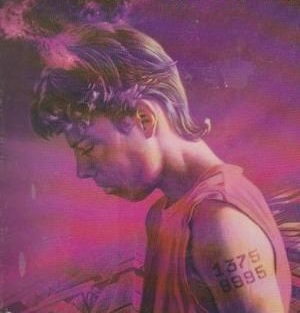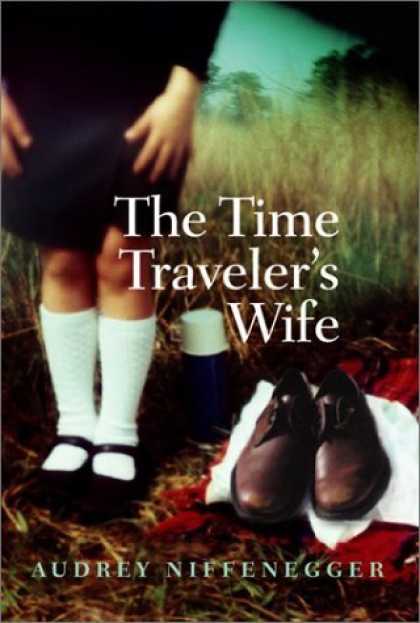The genre of the book is debatable. On one level it is simply a love story, and one could easily be forgiven for filing it away under ‘fiction’. That said, the paradoxical nature of the romantic relationship, which is central to the plot, leaves a question as to whether it should actually be viewed as a work of science fiction. It does not quite fit comfortably into this category either, since the time travel which takes place in the book does not develop as a result of technology or technological advancement, but is rather a speculative matter of biology.
Henry DeTamble has a genetic condition which sends him hurtling back and forth through time. He has no control over when he shifts and no true control over where and when he goes – although it becomes clear that he usually ends up in proximity to the most important people in his life, including himself.
The novel has a slight edge of fantasy to it as a result, however at its core, it is an exploration of relationships and human nature, with a sidebar in existentialism. On a basic level, it is a tale of love conquering all, yet on a deeper level it explores the impossible nature of love and the contradictory and inherently selfish nature of humanity. Time travel is not the point of the novel, it is the mechanism used to convey the deeper meaning and themes of the novel, and it is very beautifully done.
This book is, in one sense, mind boggling. The entire plot revolves around the fact that, at the age of thirty-six, Henry meets six year old Clare Abshire. In his present, he is married to Clare (by then an adult), and after several meetings with child-Claire eventually tells her that he is the man she will marry when she is older – he knows this, because for him it has already happened. Years later, when Clare is an adult, she runs into the Henry of her present, who at that point has never met her, and tells him all about their numerous encounters. For Henry, these incidents have yet to happen, but for Clare they are an intricate part of her childhood and her entire identity. It’s a classic predestination paradox: Clare would not have been able to tell Henry they were going to get married unless they had already got married, as she wouldn’t have known without Henry telling her. Yet it seems highly doubtful that they ever would have ended up together had Clare not essentially introduced herself as his future wife, and so a question hangs over the entire plot: did Clare and Henry fall in love with each other because they fell in love, or did they fall in love with each other because each had been told by the other that they were – in another time – already in love and married.
For those who enjoy quantum physics, it’s a fun plot, if rather predictable. For those who enjoy a good romance, it’s a good read if, again, a little predictable. The joy of the novel however comes in the eloquence of the writing and the depth of the characters – even minor characters shine in a manner that is unexpected in most novels. The point of view is also compelling. First person narrative has many huge benefits yet it often suffers from a lack of additional perspectives. Not so in this novel, for the point of view alternates between Henry and Clare, yet is always first person. As a result, you come to know both characters extremely well. It takes a great deal of skill to accomplish a believable, multiple point of view, first person narration, as the author must keep the voice for each separate character utterly consistent and completely distinct. Characters do not often come through with enough clarity for the shifts in point of view to be distinguishable, and you are left with the impression that the different characters are all very ‘samey’. That is not the case here, for while there is some initial confusion getting used to skipping back and forth between Henry and Clare – both in terms of point of view and past and presents – once you settle into it, you are left with two beautifully drawn characters who immerse you in their lives, and the deep-seated nature of their love for each other. It is almost as if, by being told that are the loves of each other’s lives, all uncertainty has been removed and they are left to simply love each other in a way that most people could never experience. They have no boundaries, no limits, and no uncertainties. At the same time, one feels that they are severely limited by this knowledge, for Clare never fully explores her life without Henry, as he is the centre of it from the time she is six years old. She spends her whole life waiting to meet him, and once she does she spends her whole life with him, and caught in limbo when he is torn away to other times. Henry on the other hand, skips through life with odd snippets of knowledge of a future he knows will happen, but is often uncertain of when.
The only downfall of the book is the predictability of the plot, for throughout you are longing for them to thwart the inevitable future. You are rooting for Henry to grow a pair and try to change the future he has seen, yet he never does – he know his own fate, and accepts it, despite the pain he knows it will cause those he loves most. It seems it never even occurs to him to try to change or avoid it; like Clare, he spends his life awaiting the moments he is certain will come and, as a result, fails to fully experience the present.
The predictability of the plot, and the lack of twists and turns, is at once a disappointment in an otherwise wonderful read, and the core of the novel itself, which explores concepts of free will and fate. Despite their abiding love for each other, both Henry and Clare suffer greatly as a result of their unconventional romance, and the over-riding question is whether they ever had any choice in the matter, or if the course of their lives (and everyone else’s) is predetermined.
Do any of us truly choose who we fall in love with?

